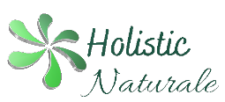What is Zinc?
Zinc is a very important mineral that is necessary for the activity of more than 300 enzymes in the body. These enzymes are involved in cell reproduction, immunity, vision, fertility, wound healing and metabolism to name a few. Zinc has a potent anti-inflammatory effect and prevents oxidative stress, which is responsible for many chronic conditions such as heart disease, cancer and dementia.
Health Benefits of Zinc
The health benefits of zinc include:
- Boosts the immune system. It reduces the risk of infection and can reduce the length of the common cold by up to 33%.1 2
- Improves wound healing. Zinc is vital for collagen synthesis, immune function and inflammatory response, and so is necessary for proper healing.1 2 3
- Treats acne. Topical and oral zinc treatments can effectively treat acne by reducing inflammation, inhibiting the growth of bacteria and suppressing oily gland activity.1 2 3
- Production of new cells and proper functioning of many enzymes
- processing carbohydrate, fat and protein in food
Dietary Sources
Good sources of zinc include:
- meat, such as beef, lamb and turkey
- shellfish, such as oysters
- dairy foods, such as cheese and eggs
- Fish, such as sardines, salmon and sole
- Legumes, such as chickpeas, lentils, black beans, kidney beans, etc.
- Spinach and kale
- nuts and seeds, such as almonds, pecans, cashews, pumpkin seeds and sunflower seeds.
- cereal products – such as wheatgerm
How much zinc do I need?
According to the British National Formulary, men need 9.5mg of zinc daily and women need 7mg daily. The therapeutic dose is about 30 to 45mg. You should be able to get all the zinc you require from your daily diet.
Avoid eating the following foods within two hours of taking a zinc supplement as they will reduce the absorption of zinc: high-fibre foods such as bran, wholegrain breads and cereals, and foods high in phosphorus, such as milk and poultry.
If you take copper, iron or phosphorus supplements, take them at least two hours before or after taking zinc.
Signs of Deficiency
Signs of deficiency include slow wound healing, loss of appetite, white spots on fingernails, joint pain, recurrent infection, and acne.
What happens if I take too much zinc?
Taking high doses of zinc reduces the amount of copper the body can absorb. This can lead to anaemia and weakening of the bones. In addition, it may cause nausea, vomiting, impaired immunity and abdominal pain
Zinc Supplements
Zinc is available as tablets, lozenges, or capsules. Zinc in the form of zinc picolinate, zinc aspirate, or zinc chelate, are preferred as they are the most easily absorbed.
Zinc supplements can be found here.

